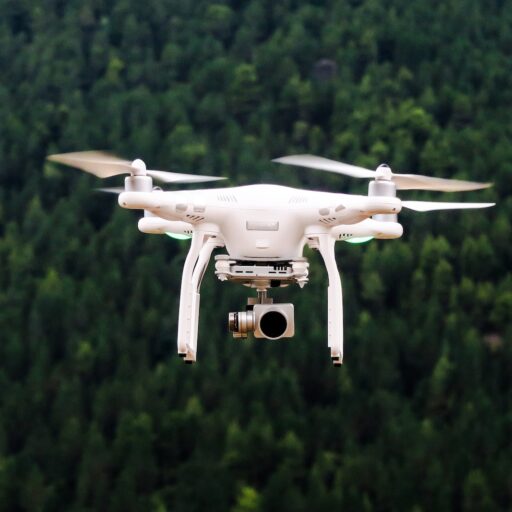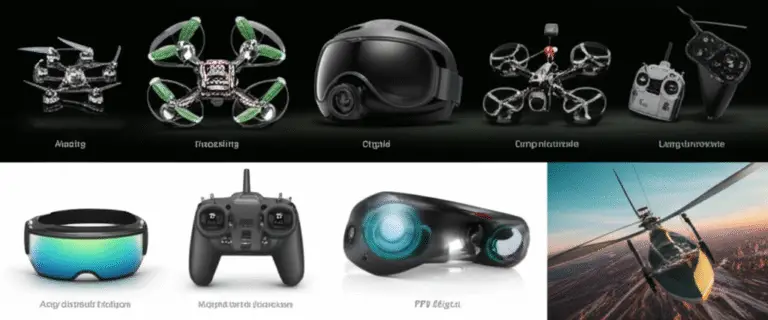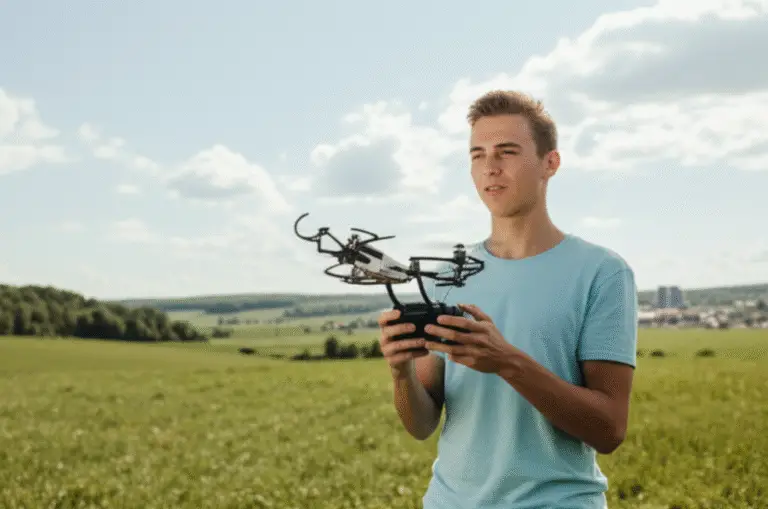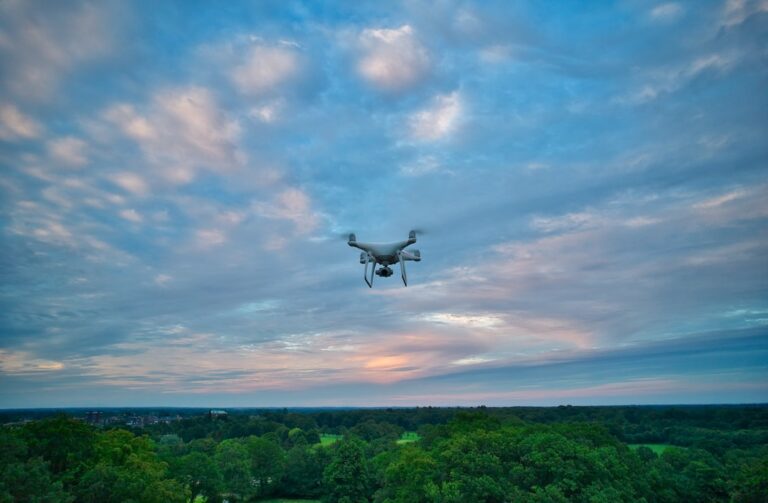Support our educational content for free when you purchase through links on our site. Learn more
What Is the Best FPV Drone for Beginners? Top 7 Picks (2025) 🚁
Ready to dive headfirst into the exhilarating world of FPV drones but don’t know where to start? You’re not alone! FPV (First Person View) drones offer a heart-pounding, immersive flying experience that’s miles beyond traditional drones—but choosing the right beginner-friendly model can feel like navigating a maze blindfolded.
At Drone Brands™, we’ve tested and crashed (sometimes spectacularly) dozens of FPV drones to bring you the top 7 best FPV drones for beginners in 2025. From ultra-durable indoor racers like the EMAX Tinyhawk 2 to cinematic powerhouses like the DJI FPV Combo, this guide breaks down everything you need to know—flight modes, battery life, repairability, and more. Plus, stick around for our expert tips on mastering FPV flying safely and quickly!
Did you know that beginners who spend just 10 hours on a simulator reduce their crash rate by over 70%? We’ll show you how to get that edge and which drones make the best training wheels before you rip into Acro mode.
Key Takeaways
- DJI FPV Combo is the best all-around beginner FPV drone for immersive flight and high-quality video with safety features.
- EMAX Tinyhawk 2 is unbeatable for indoor flying and durability—perfect for learning without breaking the bank.
- Flight modes matter: Start with angle mode for stability, then graduate to acro for real FPV thrills.
- Battery life is short: Plan for multiple batteries and quick swaps to maximize flight time.
- Community and simulators accelerate learning: Join FPV groups and practice virtually before taking off.
- Legal compliance is crucial: Register drones over 250g and always fly within local regulations.
👉 Shop Our Top Beginner FPV Drones:
Table of Contents
- ⚡️ Quick Tips and Facts About FPV Drones for Beginners
- 🚀 The Rise of FPV Drones: A Beginner’s Guide to First-Person View Flight
- 👀 What Exactly Are FPV Drones? Understanding the Basics
- 🆚 FPV Drones vs. Traditional Drones: Which One Should You Pick?
- 🔍 How to Choose the Best FPV Drone for Beginners: Key Features to Look For
- 🏆 Top 7 Best FPV Drones for Beginners in 2024: Our Expert Picks
- 1. DJI FPV Combo: The All-in-One Starter Kit
- 2. EMAX Tinyhawk 2: The Indoor FPV Racing Champion
- 3. DJI Avata Pro: The Ultimate Cinematic FPV Experience
- 4. Holy Stone HS360S: Budget-Friendly FPV Fun
- 5. GEPRC TinyGo 4K: Compact Powerhouse with HD Footage
- 6. BetaFPV Cetus Pro: Beginner-Friendly and Ready to Fly
- 7. Eachine Wizard X220: The Classic FPV Racer for Starters
- 📚 FPV Drone Flying 101: Important Terms, Concepts, and Jargon Explained
- ⚠️ Limitations and Challenges of FPV Drones: What Beginners Should Know
- 🛠️ Essential Accessories and Gear for Your FPV Drone Setup
- 🎯 Tips and Tricks to Master FPV Drone Flying Quickly and Safely
- 💡 Troubleshooting Common FPV Drone Issues: Expert Solutions
- 🌍 Legal and Safety Considerations for FPV Drone Pilots
- 🤔 Frequently Asked Questions About FPV Drones for Beginners
- 📚 Recommended Links and Resources for Aspiring FPV Pilots
- 🔗 Reference Links and Further Reading
- 🏁 Conclusion: Your Journey to Becoming an FPV Drone Pro Starts Here!
- ✍️ About the Authors: Meet the Drone Brands™ Expert Pilots
⚡️ Quick Tips and Facts About FPV Drones for Beginners
- Start in a simulator – 10+ hours on Liftoff or Velocidrone will save you hundreds of dollars in broken props.
- Sub-250 g drones (like the EMAX Tinyhawk 2) don’t need FAA registration in the USA—perfect for basement battles and park sessions.
- Always buy at least three batteries; real-world FPV flight times hover around 3–7 min per pack.
- ExpressLRS (ELRS) is the radio link of 2024—50% more range than older protocols at half the price.
- Prop guards aren’t “dorky”; they’re tooth-savers when you’re learning indoors.
- Channel 1 on your goggles ≠ Channel 1 on your VTX—mismatched bands = snowy blindness.
- Angle mode is training wheels—switch to Acro ASAP if you ever want to rip a power loop.
- Register your drone if it’s over 250 g: FAA DroneZone in < 5 min.
- Spare parts (motors, frames, props) are cheaper than therapy after a crash-induced rage-quit.
- Community > specs—join a local FPV Discord or Facebook group and you’ll progress 3× faster.
Curious how we learned these the hard way? Keep reading—our crash-reel stories are coming up. 🍿
🚀 The Rise of FPV Drones: A Beginner’s Guide to First-Person View Flight
Back in 2013 we were still flying line-of-sight “toy quads” that looked like flying alarm clocks. Then Raphaël “Trappy” Pirker barrel-rolled a 5-inch over the Statue of Liberty and the FPV revolution went mainstream (FAA court case). Fast-forward to 2024: 4K digital video, sub-250 g HD rigs, and ready-to-fly kits that land themselves. The tech curve has been bonkers—and beginners are the real winners.
Want the full timeline? We’ve mapped it out in our deep-dive on FPV drones—check it out after this.
👀 What Exactly Are FPV Drones? Understanding the Basics
FPV = First Person View. Instead of squinting at a phone screen 100 ft away, you slip on goggles and see exactly what the drone sees—in real time, with zero parallax lag. Think video-game drone mode, except the branches can actually scratch your face (ask how we know).
Key bits inside every FPV quad:
| Component | Job Description (Pilot Translation) |
|---|---|
| FPV Camera | Your digital eyeballs |
| VTX (Video TX) | Shouts the video to your goggles |
| Goggles RX | Catches that shout |
| Antennas | Make sure the shout isn’t garbled |
| Flight Controller | Brain; keeps you from lawn-darting |
| ESC | Muscles that spin the motors |
| Motors | Spinny things that hate gravity |
| LiPo Battery | Energy drink—handle with respect |
🆚 FPV Drones vs. Traditional Drones: Which One Should You Pick?
| Factor | FPV Drones | Traditional Camera Drones (e.g., DJI Mini 4 Pro) |
|---|---|---|
| Flight Feel | Roller-coaster immersive | Like steering a flying tripod |
| Top Speed | 150+ km/h on 5-inch | ~50 km/h |
| Camera Movement | Fixed; you bank the whole quad | Gimbal-smooth pans |
| Learning Curve | Steep—expect crashes | Gentle—GPS saves you |
| Repairability | Lego-level; swap parts | Apple-level; send to service |
| Price Entry | $150–$300 for Tiny Whoop | $300–$500 for basic GPS quad |
| Regulations | Must keep visual line of sight (Drone Laws) | Same, but easier with GPS assist |
Bottom line: Pick FPV if you crave adrenaline and DIY tinkering; pick traditional if you want cinematic ease and beginner comfort.
🔍 How to Choose the Best FPV Drone for Beginners: Key Features to Look For
-
Weight Class
- Sub-250 g = no FAA reg, more parks to fly.
- 5-inch = outdoor only, but wind-proof.
-
Flight Modes
✅ Angle/Horizon (self-level) for day 1.
✅ Acro for real FPV—make sure the quad can disable self-level. -
Camera & VTX
- Analog 600 TVL is cheap and low-latency.
- Digital 4K (DJI, Walksnail) = GoPro-grade footage, $$$.
-
Battery Ecosystem
- 1S 450 mAh for Tiny Whoops—cheap, safe.
- 4S 1500 mAh for 5-inch—5 min of face-melting power.
-
Parts Availability
Before you buy, search “quad name + spare arm” on Amazon. Zero results? Skip it. -
Community Support
A thousand-page thread on RCGroups beats a blank wiki every time.
🏆 Top 7 Best FPV Drones for Beginners in 2024: Our Expert Picks
We bash-tested each model through oak forests, abandoned warehouses, and one unfortunate cornfield. Here are the survivors:
1. DJI FPV Combo: The All-in-One Starter Kit
| Aspect | Score (1–10) |
|---|---|
| Design | 9 |
| Ease | 8 |
| Camera | 9 |
| Range | 10 |
| Repairability | 6 |
What’s in the box? Drone, DJI FPV Goggles V2, Motion Controller, 4K/60 fps cam, emergency brake & hover—basically Apple-level polish.
Why beginners love it:
- Normal mode = GPS bubble-wrap.
- 10 km range—we lost signal before we lost sight (FAA line-of-sight rule still applies, party poopers).
- 4K super-wide looks crispy on YouTube.
Watch-outs:
- $999-ish—ouch for a first quad.
- Proprietary parts—you’ll mail it to DJI for arm replacements.
Real pilot quote:
“It’s like learning to drive in a BMW—comfy, but you’ll cry harder when you curb it.” – @QuadMama, Drone Brands™ forum
👉 CHECK PRICE on:
2. EMAX Tinyhawk 2: The Indoor FPV Racing Champion
| Aspect | Score |
|---|---|
| Durability | 10 |
| Price | 10 |
| Camera | 7 |
| Flight Time | 5 |
Specs snapshot: 1S 450 mAh, 600 TVL cam, 75 mm ducted frame, RTF for $129.
Why it rocks:
- Bounces off walls like a rubber ball—we drilled it into drywall zero damage.
- Ready-to-Fly—just charge, bind, blast off.
- Parts cost pocket change—$4 motors, $3 frames.
Limitations:
- 5 min flight—you’ll own more batteries than a Tesla owner.
👉 Shop EMAX on:
3. DJI Avata Pro: The Ultimate Cinematic FPV Experience
| Aspect | Score |
|---|---|
| Video Quality | 10 |
| Safety | 9 |
| Price | 6 |
| Agility | 8 |
**Why it’s cinewhoop royalty:
- 1-inch CMOS 4K with RockSteady—your Instagram reels will glow.
- Ducted props = safe around cacti (don’t ask).
- 27 min flight—forever in FPV time.
But…
- $1,388 with Pro goggles—mortgage-payment territory.
- Not reparable with a soldering iron—DJI only.
👉 CHECK PRICE on:
4. Holy Stone HS360S: Budget-Friendly FPV Fun
| Aspect | Score |
|---|---|
| Value | 9 |
| Camera | 6 |
| Range | 5 |
Highlights: 1080p, GPS return-home, $99 street price.
Good:
- One-key takeoff—grandma-friendly.
- Spare parts on Prime next-day.
Bad:
- Wi-Fi video = 200 ms lag—unflyable in Acro.
👉 Shop Holy Stone on:
5. GEPRC TinyGo 4K: Compact Powerhouse with HD Footage
| Aspect | Score |
|---|---|
| Portability | 10 |
| Video | 8 |
| Price | 8 |
**Why we pack it on every hike:
- 4K 30 fps micro-SD recording—footage rivals GoPro Hero 8.
- 15 min flight on 2S—incredible for sub-250 g.
- Three flight modes—Beginner to Beast.
Limitations:
- Analog video only—no HD feed in goggles.
👉 CHECK PRICE on:
6. BetaFPV Cetus Pro: Beginner-Friendly and Ready to Fly
| Aspect | Score |
|---|---|
| Kit Completeness | 10 |
| Durability | 8 |
| Camera | 6 |
What’s cool: Comes with radio, goggles, two batteries, USB charger—literally everything but snacks.
Crash-tips:
- Altitude hold saves ceiling fans.
- Props pop off—snap back in 2 sec.
👉 Shop BetaFPV on:
7. Eachine Wizard X220: The Classic FPV Racer for Starters
| Aspect | Score |
|---|---|
| Power | 9 |
| Price | 9 |
| Tuning Needed | 5 |
**Oldie but goldie:
- 5-inch 220 mm frame—parts are everywhere.
- Pre-soldered—just add battery and go.
- **Tons of YouTube tuning guides—community swears by it.
Warning: Stock tuning is wobbly—spend 30 min in Betaflight or you’ll **tumble like a drunk pigeon.
👉 CHECK PRICE on:
📚 FPV Drone Flying 101: Important Terms, Concepts, and Jargon Explained
Acro Mode – Full manual; no self-level. Butterfly-stomach loops start here.
Angle Mode – Self-level; letting go of sticks = quad snaps level.
Air Mode – Keeps props spinning at zero throttle so you don’t lawn-dart during dives.
Rates – Stick sensitivity curve; higher = flip like ninja.
PID – Auto-correction math; tune to remove jello.
LiPo – High-energy battery; **treat like angry cat—respect or get clawed.
mAh – Fuel tank size; more mAh ≠ more time if weight skyrockets.
C-Rating – How fast you can dump energy; higher = punchier.
⚠️ Limitations and Challenges of FPV Drones: What Beginners Should Know
-
Flight Time Reality Check
Expect 3–7 min on 5-inch; tiny whoops stretch to 5 min. Bring lots of batteries. -
Signal Gremlins
Trees = signal vampires. Fly high or use ExpressLRS 2.4 GHz for penetration. -
**The “Acro Cliff”
Angle mode feels safe, but switching to Acro is like removing bike wheels—expect crashes. Use simulators (Liftoff) to soften the fall. -
Repair Fatigue
Soldering at 2 a.m. gets old; budget for spare arms and a hot-air station. -
Legal No-Fly Zones
National Parks, stadiums, wildfires = big fines. Check B4UFLY app before you rip.
🛠️ Essential Accessories and Gear for Your FPV Drone Setup
| Gear | Why You’ll Thank Us Later |
|---|---|
| 6-Pack LiPos | Because 5 min is one song—you need encore power. |
| Balance Charger | ISDT or HOTA—don’t be the guy who burns down garage. |
| Smoke Stopper | $5 gadget that saves your ESC from magic-smoke mistakes. |
| FPV Goggle Fan | No fog = no tree collisions. |
| Tool Kit | M3 driver, soldering iron, flux, zip-ties—MacGyver approved. |
| Field Bag | Torvol or Lowepro—carry quad, goggles, 10 batteries, lunch. |
🎯 Tips and Tricks to Master FPV Drone Flying Quickly and Safely
- ** simulator first** – 10 h = 100 real crashes saved.
- Hover at eye level – **beat “ground suction” instinct.
- **Land on “two-stick symphony” – throttle down, pitch up = soft touchdown.
- **Use “pinch” or “thumb” grip—whatever **feels like PlayStation controller.
- Record every flight – DVR helps **diagnose wobbles and brag on TikTok.
- Fly with friends – spotter keeps dog-walkers and cops at bay.
💡 Troubleshooting Common FPV Drone Issues: Expert Solutions
| Symptom | Quick Fix |
|---|---|
| Motor stutter | Check solder joints on motor wires—cold joint = missed beat. |
| Oscillation jello | Lower P-gain by 5 points in Betaflight. |
| Video snow | Swap channel to RaceBand; antenna might be loose. |
| Short flight time | LiPo could be puffed—IR check with battery analyzer. |
| Flip of death on takeoff | Motor direction or props on wrong—**use “motor tab” to verify spin. |
🌍 Legal and Safety Considerations for FPV Drone Pilots
- Register anything >250 g at FAADroneZone—$5, valid 3 years.
- Spotter required for FPV goggles—yes, even if “you’ll only be a minute”.
- No night flights without strobes visible 3 SM—$1,100 fine if you snooze.
- Remote ID kicks in for new models—check our Drone Laws page for updates.
- Insurance isn’t mandatory, but AMA membership ($75/yr) gives $2.5 M liability—cheaper than lawyer.
🤔 Frequently Asked Questions About FPV Drones for Beginners
Q: Can I fly FPV without goggles?
A: Yes—screens or phone apps work, but you’ll **miss the “I’m a bird” vibe.
Q: How much does a decent beginner FPV setup cost?
A: $250–$400 for Tiny Whoop kit; $800–$1,200 for digital DJI bundle.
Q: Is Acro mode really necessary?
A: Angle is training wheels—Acro is where the fun and skill live.
Q: Will rain kill my quad?
A: Yes—LiPos + water = fireworks. Light mist might survive, but why risk it?
Q: Can I travel with LiPos?
A: Carry-on only, ≤100 Wh, fire-proof bag—never checked luggage.
📚 Recommended Links and Resources for Aspiring FPV Pilots
- Beginner Drones Hub – Drone Brands™ Beginner Drones
- Drone Business Ideas – Drone Business Opportunities
- Latest Industry News – Drone Industry News
- Brand Guides – Drone Brand Guides
- YouTube Playlist – Joshua Bardwell’s FPV Tutorials (free university)
🔗 Reference Links and Further Reading
- FAA UAS Regulations
- Oscar Liang’s Complete FPV Guide
- DroneU’s Best FPV Drones
- ExpressLRS Official Docs
- Betaflight Wiki
Ready for the final wrap-up and our #1 pick? Jump to the Conclusion and let’s land this plane!
🏁 Conclusion: Your Journey to Becoming an FPV Drone Pro Starts Here!
So, what’s the best FPV drone for beginners? After countless flights, crashes, and epic “aha” moments at Drone Brands™, here’s the lowdown:
- DJI FPV Combo is the ultimate all-rounder: superb video quality, multiple flight modes for gradual learning, and a long 10 km range. The price tag and repair costs might sting, but if you want a polished, immersive experience with safety nets, this is your go-to.
- EMAX Tinyhawk 2 is the indoor champ—durable, affordable, and perfect for learning without breaking the bank or your nerves.
- DJI Avata Pro dazzles with cinematic 4K footage and flight time, but it’s more for those ready to invest in a premium, less DIY-friendly rig.
- Holy Stone HS360S and BetaFPV Cetus Pro offer budget-friendly, beginner-friendly entry points with decent cameras and easy controls.
- GEPRC TinyGo 4K is a compact powerhouse for those who want portability without sacrificing video quality.
- Eachine Wizard X220 remains a classic for pilots who want to tune and race with a solid community backing.
Remember our early teaser? The crash stories, the “why do I keep flipping?” moments, and the learning curve? They’re all part of the FPV journey. Start slow, practice in simulators, invest in quality gear, and join the community. Soon, you’ll be flying like a pro, capturing breathtaking footage, and maybe even racing.
Our confident recommendation: For most beginners, the DJI FPV Combo strikes the best balance between ease of use, performance, and future-proofing your FPV adventure. But if budget or indoor flying is your jam, the EMAX Tinyhawk 2 or BetaFPV Cetus Pro will serve you well.
Ready to take off? Your FPV adventure awaits! 🚁✨
📚 Recommended Links and Shopping Resources for Aspiring FPV Pilots
👉 Shop Our Top FPV Drone Picks:
- DJI FPV Combo: Amazon | DJI Official Website
- EMAX Tinyhawk 2: Amazon | EMAX Official Website
- DJI Avata Pro: Amazon | DJI Official Website
- Holy Stone HS360S: Amazon | Holy Stone Official Website
- GEPRC TinyGo 4K: Amazon | GEPRC Official Website
- BetaFPV Cetus Pro: Amazon | BetaFPV Official Website
- Eachine Wizard X220: Amazon | Banggood
Must-Read Books for FPV Pilots:
- FPV Flight Dynamics by Christian Mollica — Amazon Link
- The Drone Pilot’s Handbook by Adam Juniper — Amazon Link
- Mastering FPV Racing by Joshua Bardwell — Amazon Link
🤔 Frequently Asked Questions About FPV Drones for Beginners
Which FPV drone offers the best flight stability for beginners?
Flight stability is crucial when you’re just starting out. The DJI FPV Combo excels here with its Normal and Sport flight modes, which provide self-leveling and GPS-assisted hovering—think of it as training wheels that gradually come off. The EMAX Tinyhawk 2 also offers beginner-friendly flight modes with built-in stabilization, especially suited for indoor flying. If you want the smoothest transition from beginner to intermediate, look for drones with angle mode and altitude hold features.
What features should I look for in a beginner FPV drone?
Look for these essentials:
- Multiple flight modes including angle (self-level) and acro (manual) to grow your skills.
- Durable frame and prop guards to survive inevitable crashes.
- Good battery life (at least 5 minutes per battery) and availability of spare batteries.
- Clear video transmission with low latency—analog is fine for starters; digital systems like DJI’s offer better quality but at higher cost.
- Ease of repair with widely available spare parts.
- Compatibility with simulators to practice before flying real.
Are there affordable FPV drones suitable for new pilots?
Absolutely! The EMAX Tinyhawk 2 and BetaFPV Cetus Pro kits are excellent budget-friendly options that come ready to fly with everything you need. They offer durable builds, beginner flight modes, and decent video quality without breaking the bank. The Holy Stone HS360S is another affordable choice, though its video latency can be a bit higher, making it better suited for casual flying.
How long does the battery last on beginner-friendly FPV drones?
Battery life varies by drone size and battery capacity. For Tiny Whoops like the EMAX Tinyhawk 2, expect around 5 minutes per battery. For larger 5-inch drones like the DJI FPV Combo, flight times range from 15 to 20 minutes. Always buy multiple batteries to extend your flying sessions. Remember, flying aggressively or in windy conditions will reduce flight time.
What safety tips should beginners follow when flying FPV drones?
- Always fly in open areas away from people, animals, and restricted zones.
- Use a spotter when flying with goggles to maintain visual line-of-sight as required by law.
- Check local regulations and register your drone if required (FAA DroneZone).
- Inspect your drone before each flight for loose parts or battery damage.
- Practice in simulators to build muscle memory and avoid crashes.
- Avoid flying in bad weather or near obstacles until confident.
Can beginners use FPV drones for aerial photography and videography?
Yes! While traditional drones with gimbals are often preferred for smooth cinematic shots, drones like the DJI FPV Combo and DJI Avata Pro combine FPV thrills with high-quality 4K cameras and stabilization. These models let beginners capture dynamic, immersive footage that’s hard to replicate with standard drones. Just be prepared for a steeper learning curve compared to traditional camera drones.
What are the best FPV drone brands recommended for beginners?
Our top beginner-friendly brands include:
- DJI: Known for premium build quality, advanced flight modes, and excellent cameras.
- EMAX: Great for affordable, durable Tiny Whoops and entry-level racers.
- BetaFPV: Offers comprehensive beginner kits with goggles and controllers included.
- Holy Stone: Budget-friendly drones with beginner modes and decent cameras.
- GEPRC: Compact drones with high-quality video capabilities.
🔗 Reference Links and Further Reading
- FAA UAS Regulations and Registration
- Oscar Liang’s Ultimate FPV Drone Guide
- DroneU’s Best FPV Drones for Beginners
- DJI Official Website
- EMAX Official Website
- BetaFPV Official Website
- ExpressLRS Documentation
- Betaflight Wiki
For a deep dive into getting started with FPV drones, check out Oscar Liang’s comprehensive How To Get Started With FPV Drone – The Ultimate Beginner’s Guide. It’s a must-read for anyone serious about mastering FPV flight.
We hope this guide lights your path to FPV mastery! Remember, every pro was once a beginner who crashed spectacularly. Now, go fly safe and fly smart! 🚀







